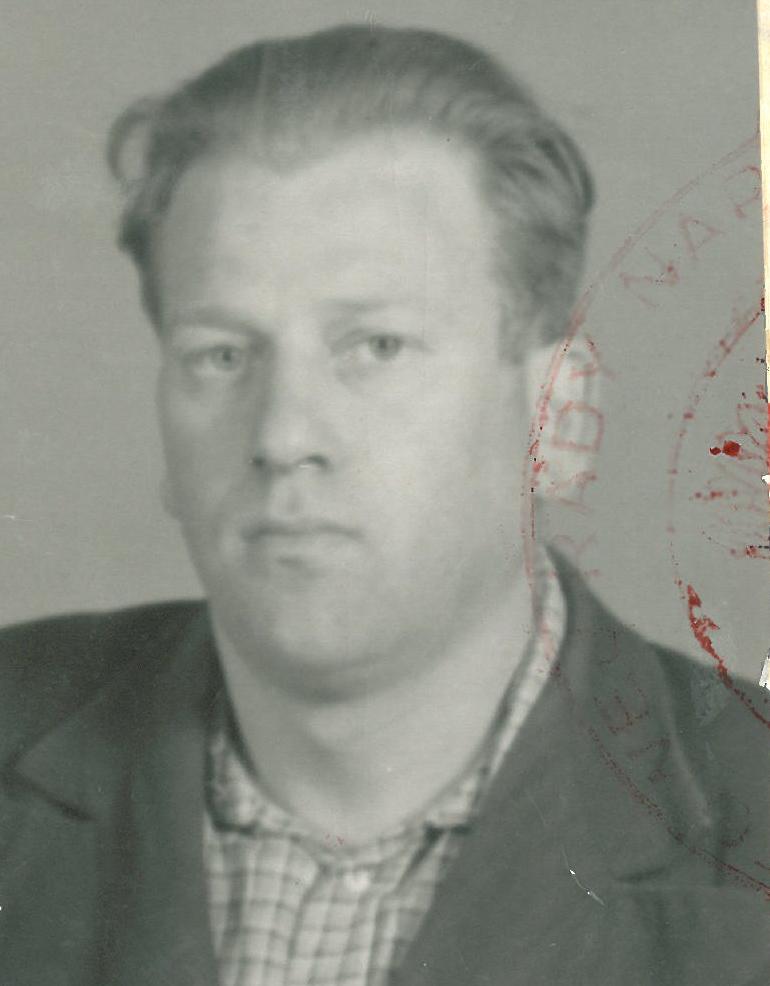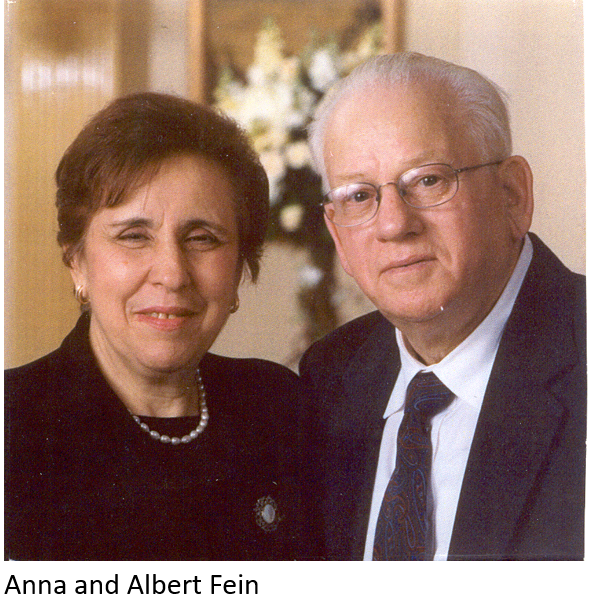Albert Fein
"First of all, World War II left a big wound in Jewish life, in Jewish history. We should all treat one another with respect. Life is short and we all will come to the same end. Stay a mensch (good person); remember who you are and where you came from."
Name at birth
Avraham Fein, Albert Fajowicz (war)
Date of birth
07/10/1928
Where were you born?
Where did you grow up?
Uzhgorod, Czechoslovakia
Name of father, occupation
Solomon Fein,
Baker
Maiden name of mother, occupation
Hermina Winkler,
Homemaker and Teacher
Immediate family (names, birth order)
Parents, Ruchel, Elizabeta, Yaakov and me
In 1938, the Hungarians took over the Carpathian-Russ area including Uzhgorod. In 1941, the Hungarians deported the Jews in the area to Kammience-Podolsk in the Ukraine. My family was taken to a ghetto in the city of Kolomyja, Ukraine/Galicia. On August 26, 1941, the 15,000 residents of the ghetto were taken out to a valley to be executed. A German general flew in to witness the massacre. The Zionist organization urged people to run away. My mother, who grew up in Vienna, Austria, spoke fluent German told the Germans that there was a misunderstanding, that we were Christians.
I was 13 years old at that time. My family received a document stamped by the German authorities that “proved” that they were non-resident aryans. This document was made out in the family’s new name, “Fajowicz”. This is the name my wife, daughter and I used until we became U.S. citizens. Our family moved from place to place so as not be gotten too well known. We spoke German and Hungarian to each other, being careful not to speak Yiddish or Hebrew. We never knew who might be listening; it was a struggle for life.
In 1944, the Soviets came in. Our family was suffering; there was no work, no food. The plan was, one by one, for the family to return to Uzhgorod. My oldest sister, Ruchel, was taken back to Hungary by a smuggler. She was later captured by the Germans and taken to the now established, Uzhgorod Ghetto. She was later taken to Auschwitz but survived the Holocaust. My father attempted to return to Uzhgorod. The Germans stopped him and he was shot trying to escape.
I lived in Kolomyja, Ukraine until 1959. During the time I lived in the Ukraine, my brother Yaakov, who lived with the family, was arrested by the KGB on suspicion of spying. He became ill with tuberculosis and died. We did not advertise our Jewish-ness. I lived in Walbrzych, Poland, then Wroclaw, Poland. I emigrated to the United States 1965 with my wife Anna, and daughter, Renetta.
Name of Ghetto(s)
Where were you in hiding?
Kolomyja
When did you come to the United States?
1965
Where did you settle?
Detroit, Michigan
How is it that you came to Michigan?
I had an uncle and cousins in the Detroit area.
Occupation after the war
Tool and Die Maker
When and where were you married?
1963 in Wroclaw, Poland
Spouse
Anna (Ania) Wancjer,
Beautician
Children
Renee (formerly Renetta), MBA, program coordinator, Program for Holocaust Survivors and Families/Jewish Senior Life
What do you think helped you to survive?
Initially it grows on you, you are born with it. Surviving taught me how to live, how to hide bad things or good things. I’m not afraid to say what I want.
What message would you like to leave for future generations?
First of all, World War II left a big wound in Jewish life, in Jewish history. We should all treat one another with respect. Life is short and we all will come to the same end.
Stay a mensch (good person); remember who you are and where you came from.
Interviewer:
Charles Silow
Interview date:
08/05/2011
To learn more about this survivor, please visit:
The Voice/Vision Holocaust Survivor Oral History Archive, University of Michigan
https://holocaust.umd.umich.edu/fein/
https://holocaust.umd.umich.edu/fein/
The Zekelman Holocaust Center Oral History Collection
https://5152.sydneyplus.com/argus/final/Portal/Default.aspx?component=AAFG&record=9586863d-4fc8-4bd4-9aaf-318997243bc7
https://5152.sydneyplus.com/argus/final/Portal/Default.aspx?component=AAFG&record=9586863d-4fc8-4bd4-9aaf-318997243bc7
Experiences
Survivor's map


